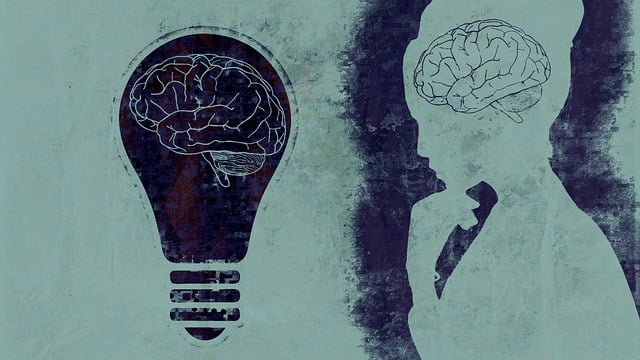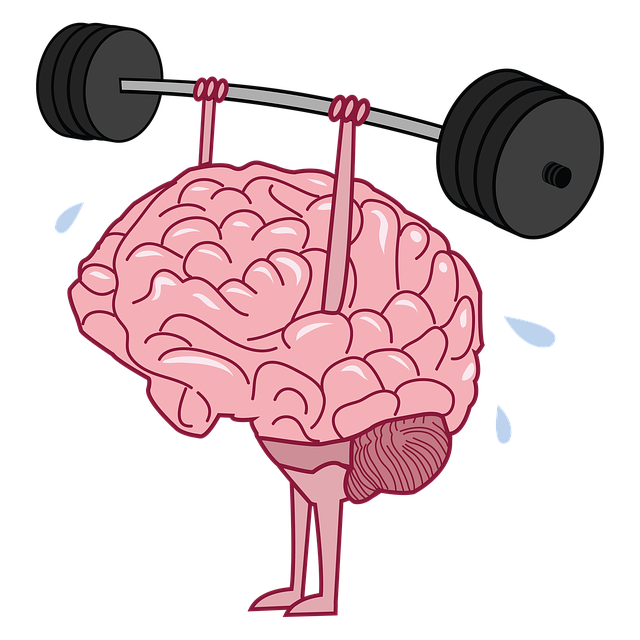Dissociative Disorder (DD) is a complex mental health condition characterized by memory, identity, and consciousness disruptions. Diagnosed through comprehensive evaluations by mental health professionals, DD management includes therapy like trauma-focused cognitive behavioral therapy (TF-CBT) for processing traumatic memories. Mental wellness journaling, burnout prevention for healthcare providers, risk assessment, and communication strategies are also crucial. Effective healing requires tailored therapy, risk management, and emotional intelligence to improve well-being. Supportive networks, stress management, self-care practices, and public awareness campaigns further aid in long-term recovery from DD.
Mental illness, particularly dissociative disorder, can be complex to navigate. This article provides an insightful guide to understanding, diagnosing, and treating this condition. We explore key symptoms and diagnostic processes, highlighting the importance of professional help. The piece delves into various therapy options, emphasizing their effectiveness in managing dissociative symptoms. Additionally, it offers a look at support systems and resources crucial for a successful recovery journey, focusing on accessible therapy for dissociative disorder.
- Understanding Dissociative Disorder: Symptoms and Diagnosis
- Navigating Treatment Options for Effective Healing
- The Role of Therapy in Managing Dissociative Symptoms
- Support Systems and Resources for a Successful Recovery Journey
Understanding Dissociative Disorder: Symptoms and Diagnosis

Dissociative Disorder (DD) is a complex mental health condition characterized by disruptions in memory, identity, and consciousness. Individuals with DD often experience a sense of detachment from their thoughts, feelings, or surroundings, leading to symptoms that can significantly impact daily functioning. Understanding this disorder requires recognizing its various manifestations.
Diagnosing DD involves a comprehensive evaluation by qualified mental health professionals. They look for recurring episodes of detachment, amnesia, and altered states of consciousness. Common symptoms include depersonalization (feeling detached from oneself), derealization (feeling that surroundings are unreal), and discrete episodes of memory loss. The diagnosis is made when these symptoms persist for at least a month, causing distress or impairment in social, occupational, or other important areas of functioning. Accessing therapy for dissociative disorder, such as trauma-focused cognitive-behavioral therapy, play a crucial role in emotional healing processes by helping individuals process traumatic memories and integrate their experiences back into their sense of self. Mental wellness journaling exercises guidance can also be beneficial in tracking symptoms, identifying triggers, and cultivating self-awareness. Additionally, burnout prevention strategies for healthcare providers are essential given the demanding nature of navigating this disorder.
Navigating Treatment Options for Effective Healing

Navigating treatment options is a critical step in the journey towards healing from mental illness, especially when dealing with complex conditions like dissociative disorders. Therapy plays a pivotal role in helping individuals manage symptoms and improve their quality of life. For those with dissociative disorders, specialized therapy such as trauma-focused cognitive behavioral therapy (TF-CBT) or eye movement desensitization and reprocessing (EMDR) has proven effective. These therapeutic approaches focus on addressing underlying trauma and dissociation, enhancing emotional intelligence, and developing coping strategies to manage symptoms.
Effective healing also relies on a comprehensive risk assessment for mental health professionals, ensuring they can provide safe and supportive care. Communication strategies are essential tools for fostering a strong therapeutic alliance. Professionals must create an environment where clients feel understood, validated, and encouraged to share their experiences openly. By combining tailored therapy, risk management, and emotional intelligence, mental health professionals can offer targeted support, enabling individuals with dissociative disorders to embark on a path towards healing and improved well-being.
The Role of Therapy in Managing Dissociative Symptoms

Therapy plays a pivotal role in managing dissociative symptoms associated with conditions like Dissociative Disorder (DD). This therapeutic approach offers a safe and structured environment for individuals to explore their internal experiences and fragmented memories, helping them to gain insight into their condition. Through various therapeutic techniques, patients can learn to process traumatic events that may have contributed to the dissociation, thereby improving their ability to integrate different aspects of their consciousness.
One effective therapy for DD is cognitive behavioral therapy (CBT), which focuses on identifying and modifying negative thought patterns and behaviors. CBT also includes strategies for mindfulness meditation and coping skills development, enhancing individuals’ ability to stay grounded in the present moment and manage stress effectively. Additionally, dynamic psychotherapy encourages exploration of past experiences and interpersonal relationships, fostering a deeper understanding of dissociation as a coping mechanism and promoting healthier ways of relating to oneself and others. These therapeutic approaches not only alleviate dissociative symptoms but also boost confidence and overall mental well-being.
Support Systems and Resources for a Successful Recovery Journey

A supportive network is integral to navigating the complex path of mental illness diagnosis and recovery. For individuals dealing with conditions like dissociative disorders, access to specialized therapy for dissociative disorder becomes a cornerstone of their treatment journey. This therapeutic process often involves various techniques tailored to help patients integrate fragmented memories and emotions, promote self-awareness, and rebuild a sense of identity. Beyond therapy, stress management and self-care practices, such as meditation, exercise, and engaging in hobbies, play a significant role in complementing formal treatment. These activities empower individuals with coping mechanisms, fostering resilience against stressors that might trigger symptoms.
Building upon these personal strategies, public awareness campaigns development serves as a crucial layer of support. Educating the public about mental health fosters an environment where those struggling can find understanding and encouragement. Increased visibility of resources like crisis hotlines, support groups, and community-based programs ensures individuals have access to help during their recovery journey. Together, these interconnected elements—specialized therapy, self-care, and public awareness—create a robust framework for supporting those with mental illness, ultimately enhancing the likelihood of successful long-term recovery.
Mental health journeys are highly personal, especially when dealing with complex conditions like Dissociative Disorder. By understanding symptoms, navigating available treatment options, and leveraging therapy as a powerful tool, individuals can effectively manage their dissociative symptoms. Support systems and resources play an equally crucial role in ensuring successful recovery. Remember that seeking professional help is the first step towards healing, and with the right approach, it’s possible to embrace a brighter, more fulfilling future. For those struggling, consider exploring therapy for Dissociative Disorder as a path to regaining control and improving overall well-being.














